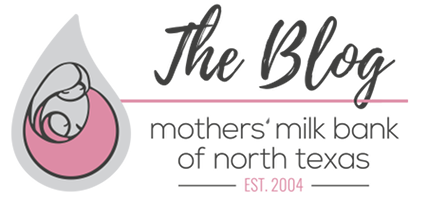Human Breastmilk - Commodity or Philanthropy?
Over the past 6 months, the subject of human breastmilk has been in the news more and more. Specifically, online news sources and magazines have featured the intensified debate over selling breastmilk for profit versus donating it to a non-profit milk bank. We examined this topic in a blog last December entitled Milk for Money, Is it Ethical for a Company to Pay Moms for Breastmilk? Since then, we have been following both sides of this issue closely.  One article, published last week, was particularly poignant, as it was written from the perspective of a milk donor, someone who has painstakingly pumped milk, an exercise that requires a lot time and effort. After all, pumping is not described by most as a hobby or enjoyable pastime. It truly is a selfless act, especially so, when pumped milk is donated to help medically needy babies. Published by The New York Times online on March 27 in "The Opinion Pages", here is an excerpt with a link for the entire article:
One article, published last week, was particularly poignant, as it was written from the perspective of a milk donor, someone who has painstakingly pumped milk, an exercise that requires a lot time and effort. After all, pumping is not described by most as a hobby or enjoyable pastime. It truly is a selfless act, especially so, when pumped milk is donated to help medically needy babies. Published by The New York Times online on March 27 in "The Opinion Pages", here is an excerpt with a link for the entire article:
Give Breast Milk
by Elizabeth Currid-Halkett
I PRODUCED more than 2,500 ounces of surplus breastmilk with my first son. I am almost six months postpartum with my second child, and already my freezers are stuffed with five-ounce bags of milk. Some women are computer programmers or impressive cooks. I'm good at producing breast milk. My friends and family marvel at this talent, sort of. They like to joke that I could make really money if I sold it.
She continues . . .
But I don't sell my milk. I am lucky enough to be able to donate it. With my first son, I sent more than 1,000 ounces of breast milk to the Mothers' Milk Bank of San Jose, Calif., which distributes milk to neonatal intensive care units around the country. See the full article here.
 Slate.com, an online magazine about news, politics and culture, also published an article last week called, "Wet Nursing is Back! Sort Of." Brooklyn-based writer, Amanda Marcotte references Elizabeth Currid-Halkett's article and examines both sides of the controversy. Although we take issue with her statement about scientific research and breastmilk, we strongly back how she summarized the potential pitfalls of one company's milk-purchasing strategy:
Slate.com, an online magazine about news, politics and culture, also published an article last week called, "Wet Nursing is Back! Sort Of." Brooklyn-based writer, Amanda Marcotte references Elizabeth Currid-Halkett's article and examines both sides of the controversy. Although we take issue with her statement about scientific research and breastmilk, we strongly back how she summarized the potential pitfalls of one company's milk-purchasing strategy:
It's hard to begrudge a new mother extra income if she can produce more milk than her baby needs. But it's also discomfiting to think that we're on a path where poor women's bodies are being commodified so that wealthier mothers don't have to resort to formula. Click here to read Marcotte's full article.
 At Mothers' Milk Bank of North Texas, we defer back to Currid-Halkett's view,
At Mothers' Milk Bank of North Texas, we defer back to Currid-Halkett's view,
To donate milk takes a bit more effort than showing up at a blood drive, but it is just as critical. Giving milk, like giving blood, offers an invaluable reward: the satisfaction of doing our duty as healthy humans to help babies who are not.
When we asked our moms why they choose to donate to a non-profit milk bank, here's what they said,
"It's important to me that I don't support a company that looks after it's own interests and makes money off my milk."
"I like knowing that my extra breastmilk is going to help sick babies get better and not help a company get richer."
"Giving to a non-profit milk bank ensures the most critical babies will receive my milk regardless of their socioeconomic situation at home."
To learn more about our non-profit milk bank, click here.
